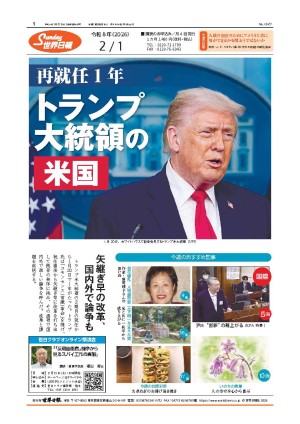挑戦を受けて立とうとしているNATO Mustering NATO
パーセプション(直感的認識)は現実になり得る。しかし、パーセプションは単なるパーセプションにすぎないことがある。北大西洋条約機構(NATO)の場合は、イスラム過激派によるテロの脅威の高まりを受けて、この同盟に加盟国を守る力があるのか、いざというときに、片隅に追いやられることがあり得るのだろうか、ということに、注目が集まってきている。トランプ大統領の挑戦に対するNATOの反応次第で、NATOが敵を打倒するのに頼りになり得るか決まることになろう。
NATOサミットが行われた先週のブリュッセルで、トランプ氏は、NATOは「イスラム国」別名ISISと戦う米国主導の連合に参加する気持ちは十分あるという確信を得た。この兆候は、最近のマンチェスター爆弾事件に対する激しい怒りがこだまのように拡大して、増幅した。大統領はいつもの米国流の躊躇(ちゅうちょ)癖に流されることなく語った。同盟国らに、口で言うだけでなく行動で証明するように言った。同盟国の大部分は、GDP(国内総生産)の2%の共同防衛への義務的支出を実行していない。「加盟28カ国のうち23カ国が、共同防衛のために、払っているべきものをまだ、そして払うものとされているものを、払っていない」「これは、米国の国民と納税者にとって不公平である。これらの国々の多くは、過去の長い年月からの膨大なカネを負債として抱えているのだ」と大統領は言った。
大統領が、NATOは「時代遅れ」だという彼の選挙運動中の嘲笑的言葉を引っ込めたのは正しかった。しかし、彼は明らかに、同盟に対して、米国に加わってもらい、一部の他の国々にテロ撲滅の運動を行うよう期待している。実際、NATOは、大西洋の両岸で人気度の驚異的な復活を享受している。先週出された(世論調査機関)ピュー・リサーチ・センターの調査は、2016年の、米国人の辛うじて半数がNATOに好感を持っているという厳しい数字の落ち込みの後で、現在は62%となっているのは明るい展望であるということを伝えている。欧州においては、昨年は、50%をはるかに下回ったスペインのケースから、ポーランドの72%までと、広がりを示している。以来、支持率は上昇して、欧州のすべての国で、ポーランドやオランダの79%のように、高い数値を記録している。
ピューの調査は、イデオロギーを好感度の大きな要因とみているが、それは驚くに当たらない。「NATOの好意的見方の全般的上昇の背景には、加盟国の国民が同盟をどう見るかについての政治的、党派的な大きな相違があるのだ」と、ピューは看破している。米国では、81%のリベラル派が親NATOで、保守派は48%である。
NATOにとっての最も重要な問題は、NATO憲章(集団防衛)第5条の順守を重んじるかどうかであって、それは、各国は、一国に対する武力攻撃を全員に対するものと見なすことを義務とする、というものである。調査を受けた62%という安定過半数の米国人が、ロシアとの武力紛争では同盟国を守るべきだと言い、31%が反対している。
欧州人の姿勢は、この問題に関しては、72%から23%の幅があり、オランダでは40%、ドイツでは53%という過半数が反対である。ピューは、ある国の共通防衛支持のレベルを、その国の脆弱(ぜいじゃく)性に帰している。つまり「調査された大抵の国では、より多くの人がロシアを大きな脅威と感じており、安全保障のパートナーの防衛に当たりたいのはやまやまだが、その恐怖感は、その意欲を上回るのだ」という訳である。
NATOはまだ、本物の脅威には直面していない。同機構は、2001年9月11日攻撃を受けて起きたアフガニスタン戦争の際には、米国を助けに行った。しかし、それ以外には、そこが軍を派遣したのはほとんど限定的紛争――ボスニア内戦や、1990年のコソボ紛争介入、そして、2011年のリビアのムアマル・カダフィの打倒など――に向けたものだった。もしも、この同盟が、中東や、加盟国自身の国にいるテロリストらを全滅させることができたら、それは、すべての疑い深い人たちに、これは本物の――時代遅れどころではない――軍隊であることを証明することになろう。
(5月30日付)
Perception can be reality, but sometimes perception is only perception. In the case of the North Atlantic Treaty Organization, the growing menace of radical Islamic terror has focused attention on whether the alliance has the ability to defend its members, or whether when push comes to shove it can be shoved to the margin. NATO’s response to President Trump’s challenge will determine whether it can be depended on to defeat an enemy.
In Brussels last week for the NATO summit, Mr. Trump heard assurances that the organization is fully committed to joining a U.S.-led coalition to fight the Islamic State, or ISIS, a promise amplified by the echoes of the latest outrage in Manchester bombing. The president didn’t indulge the usual American hesitation to tell the allies to put their money where their mouths are. Most of those allies have failed to pay their obligatory 2 percent of gross domestic product for the common defense. “Twenty-three of the 28 member nations are still not paying what they should be paying and what they’re supposed to be paying for their defense,” the president said. “This is not fair to the people and taxpayers of the United States. Many of these nations owe massive amounts of money from past years.”
The president rightly retreated from his campaign taunt that NATO is “obsolete,” but he is clearly counting on the alliance to join the United States and certain other nations to take up the cause of defeating terrorism. Indeed, NATO has enjoyed a surprising resurgence in popularity on both sides of the Atlantic. A Pew Research Center survey last week finds that following a sharp decline in which barely half of Americans in 2016 viewed NATO favorably, 62 percent now have a positive view. In Europe, support ranged last year from well below 50 percent in Spain to 72 percent in Poland. Support has risen since in all European nations, with a high of 79 percent in Poland and the Netherlands.
The Pew survey perceives ideology as influencing favorability, and that’s not surprising. “Behind the overall uptick in favorable views of NATO, there are sharp political and partisan differences in how the public in member countries perceive the alliance,” Pew finds. In the United States, 81 percent of liberals are NATO-friendly and 48 percent of conservatives are.
The most critical question for NATO is whether it will honor the commitment to Article 5 of the charter, which obligates each nation to consider an armed attack against one state an attack on all. A solid majority of 62 percent of Americans surveyed say the U.S. should defend an ally in an armed conflict with Russia, and 31 percent disagree.
European attitudes range from a 72 to 23 percent on the question in the Netherlands to 40 to 53 percent majority opposition in Germany. Pew attributes the level of support for the common defense in a nation to its vulnerability: “In most countries surveyed, the more people perceive Russia as a major threat, the greater their willingness to come to a security partner’s defense.”
NATO has yet to face a real threat. The organization came to the aid of the United States in the Afghanistan War following the attacks of Sept. 11, 2001, but otherwise it has mustered forces mostly in limited conflicts – the Bosnian War and Kosovo intervention in the 1990s and the overthrow of Moammar Gadhafi in Libya in 2011. If the alliance can obliterate Islamic terrorists in the Middle East and in their midst at home, it will prove to all doubters that it is a real military force – and far from obsolete.
May 30, 2017





